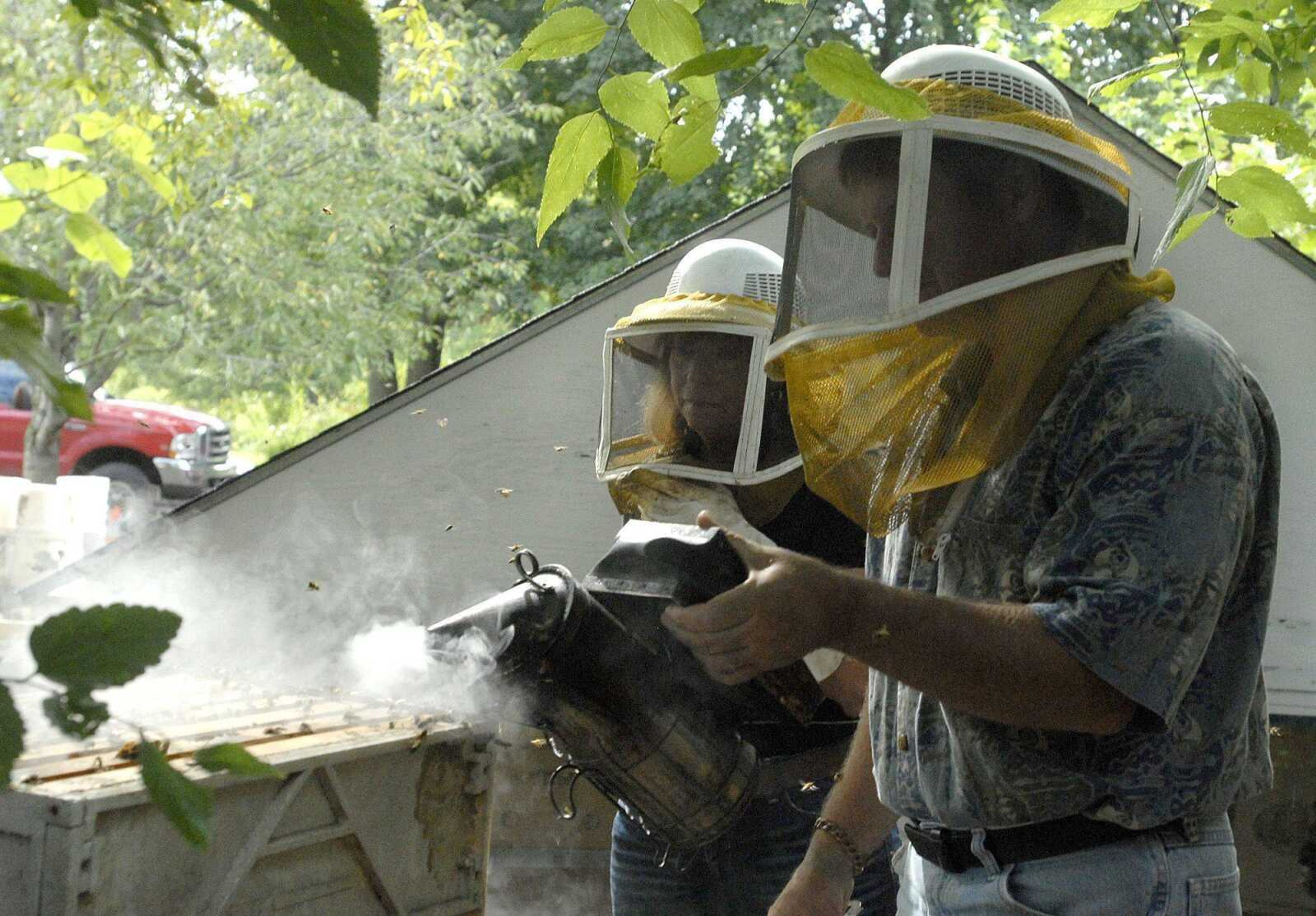Surrounded by buzzing bees and wearing a veiled hat, Rep. Jo Ann Emerson got a close look into the business of bringing up bees in Jackson as part of her annual agriculture tour Friday.
The Rev. Grant Gillard, who has 150 hives scattered at 27 locations in Southeast Missouri, talked with Emerson about his business -- producing and packing honey to be sold at local retailers and farmers markets.
During her five-day tour of agricultural operations in the 8th District, Emerson is meeting with rice farmers, touring dairy operations, research centers, vegetable farms, horse stables, timber companies and several row crop farms.
Emerson said she's seen agriculture within her district become more diverse.
She said it's particularly important to get feedback from Missouri's agriculture producers now as Congress will soon begin work on a new Farm Bill. The current Food, Conservation and Energy Act, also known as the Farm Bill, expires in October 2012.
"There is a great concern about what the next Farm Bill is going to look like," Emerson said. "Given all the budget constraints that we have, how's that going to impact how we do business? There's more uncertainty out there."
The contents of the Farm Bill depend a lot on commodity prices, she said.
"If commodity prices, in fact, continue to be as high as they are now, there is less federal money spent for any kind of safety net support," Emerson said. "How do you provide a safety net in the future going forward if we have total devastation for our crops, either through drought or what have you?"
The recent economic downturn hasn't hurt the honey business, Gillard said. He is expanding and completing work on a new building to house his honey-producing and packing operations near his Jackson home.
"People are looking for value and feel like buying local is helping the local economy," Gillard said.
His business started with one hive he put on his roof to keep the bees away from his children. It eventually filled his garage, his basement, his family room and even his daughter's room when she left for college. Gillard is one of about 10,000 part-time beekeeping businesses in the country. There are only about 2,000 commercial beekeepers, he said.
One of the biggest challenges beekeepers have is competing with imported honey. Much of that honey, he said, is contaminated with illegal antibiotics and heavy metals.
"We need better labeling laws and truth-of-origin statements," he said, so people better understand where their honey is coming from.
mmiller@semissourian.com
388-3646
Pertinent address:
3721 North High St., Jackson, Mo.
Connect with the Southeast Missourian Newsroom:
For corrections to this story or other insights for the editor, click here. To submit a letter to the editor, click here. To learn about the Southeast Missourian’s AI Policy, click here.








